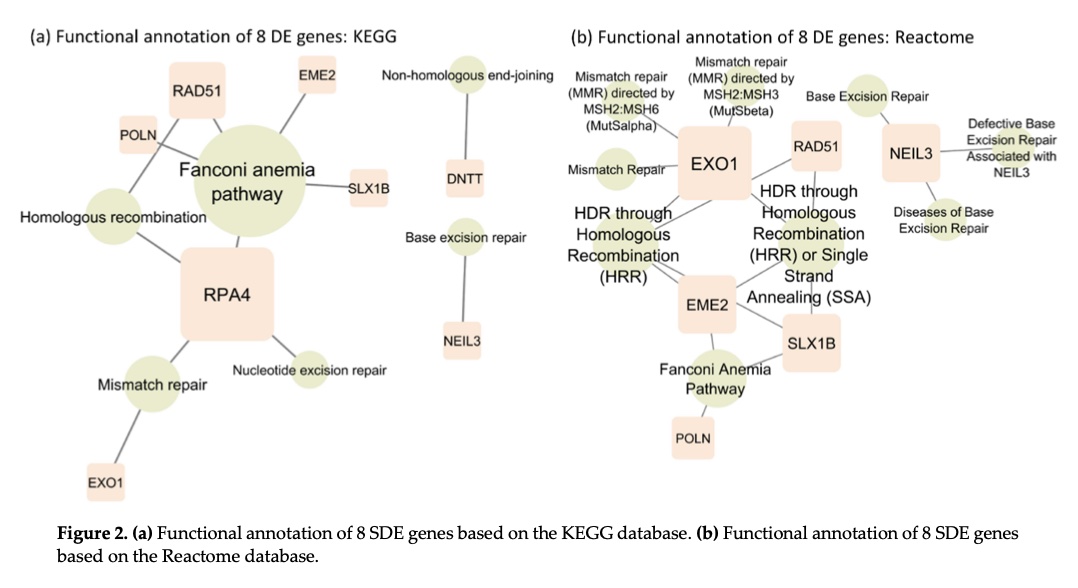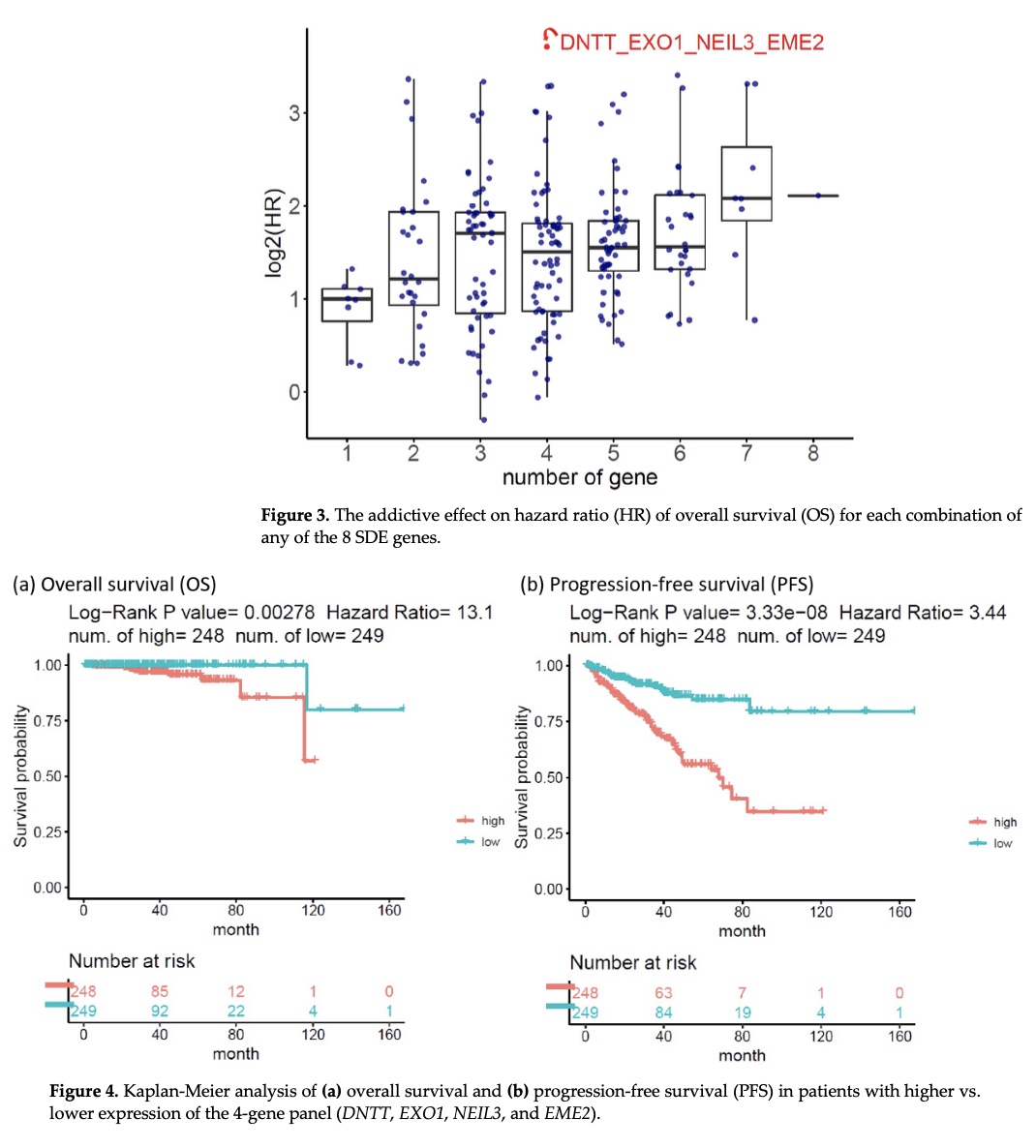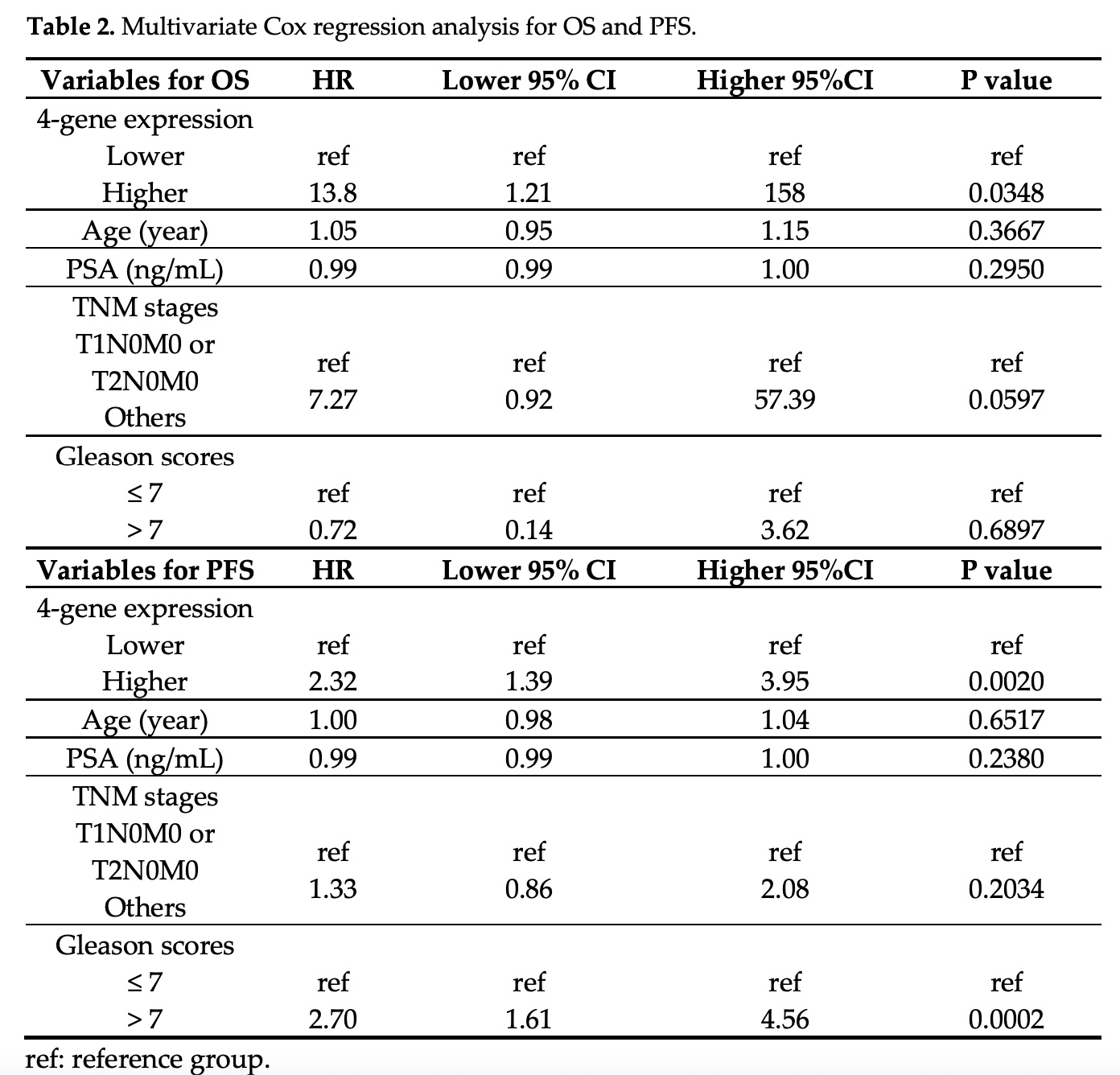Back
Poster, Podium & Video Sessions
Moderated Poster
MP45: Prostate Cancer: Markers
MP45-18: Identification of DNA Damage Repair-Associated Prognostic Biomarkers for Prostate Cancer Using Transcriptomic Data Analysis
Sunday, May 15, 2022
1:00 PM – 2:15 PM
Location: Room 225
Shu-Pin Huang*, Kaohsiung, Taiwan, Pai-Chi Teng, Taipei, Taiwan, Chia-Hsin Liu, Taichung, Taiwan, Ting-Yi Lin, Taipei, Taiwan, Yi-Chun Cho, Yo-Liang Lai, Taichung, Taiwan, Shu-Chi Wang, Hsin-Chih Yeh, Kaohsiung, Taiwan, Chih-Pin Chuu, Miaoli, Taiwan, Deng-Neng Chen, Pingtung, Taiwan, Wei-Chung Cheng, Taichung, Taiwan, Chia-Yang Li, Kaohsiung, Taiwan

Shu-Pin Huang, MD, PHD
Professor
Kaohsiung Medical University
Poster Presenter(s)
Introduction: In the recent decade, the importance of DNA damage repair (DDR) and its clinical appli- cation have been firmly recognized in prostate cancer (PC). For example, olaparib was just approved in May 2020 to treat metastatic castration-resistant PC with homologous recombination repair-mu- tated genes; however, not all patients can benefit from olaparib, and the treatment response de- pends on patient-specific mutations. This highlights the need to understand the detailed DDR biol- ogy further and develop DDR-based biomarkers.
Methods: In this study, we establish a four-gene panel of which the expression is significantly associated with overall survival (OS) and progression-free survival (PFS) in PC patients from the TCGA-PRAD database.
Results: The established panel includes DNTT, EXO1, NEIL3, and EME2 genes. Patients with higher expression of the four identified genes have signifi- cantly worse OS and PFS. This significance also exists in a multivariate Cox regression model ad- justing for age, PSA, TNM stages, and Gleason scores. Moreover, the expression of the four-gene panel is highly correlated with aggressiveness based on well-known PAM50 and PCS subtyping classifiers.
Conclusions: Using publicly available databases, we successfully validate the four-gene panel as hav- ing the potential to serve as a prognostic and predictive biomarker for PC specifically based on DDR biology.
Source of Funding: This study was supported by grants from the Ministry of Science and Technology, Taiwan, R.O.C. (grant No. MOST 108-2314-B-037-079-MY3, MOST 109-2622-E-039-004-CC2, MOST 109-2628- E-039-001-MY3, MOST 109-2327-B-039-002, MOST109-2314-B-037-106-MY3 and MOST 109-2320-B- 037-007-MY3), Kaohsiung Medical University Chung-Ho Memorial Hospital (grant No. KMUH105- 5M55), China Medical University Hospital (grant No. DMR-109-223, DMR-110-072 and DMR-110- 244), and China Medical University, Taiwan, R.O.C. (grant No. CMU107-S-24, CMU108-Z-02, CMU108-S-22, CMU109-MF-61 and CMU110-MF-64).




Methods: In this study, we establish a four-gene panel of which the expression is significantly associated with overall survival (OS) and progression-free survival (PFS) in PC patients from the TCGA-PRAD database.
Results: The established panel includes DNTT, EXO1, NEIL3, and EME2 genes. Patients with higher expression of the four identified genes have signifi- cantly worse OS and PFS. This significance also exists in a multivariate Cox regression model ad- justing for age, PSA, TNM stages, and Gleason scores. Moreover, the expression of the four-gene panel is highly correlated with aggressiveness based on well-known PAM50 and PCS subtyping classifiers.
Conclusions: Using publicly available databases, we successfully validate the four-gene panel as hav- ing the potential to serve as a prognostic and predictive biomarker for PC specifically based on DDR biology.
Source of Funding: This study was supported by grants from the Ministry of Science and Technology, Taiwan, R.O.C. (grant No. MOST 108-2314-B-037-079-MY3, MOST 109-2622-E-039-004-CC2, MOST 109-2628- E-039-001-MY3, MOST 109-2327-B-039-002, MOST109-2314-B-037-106-MY3 and MOST 109-2320-B- 037-007-MY3), Kaohsiung Medical University Chung-Ho Memorial Hospital (grant No. KMUH105- 5M55), China Medical University Hospital (grant No. DMR-109-223, DMR-110-072 and DMR-110- 244), and China Medical University, Taiwan, R.O.C. (grant No. CMU107-S-24, CMU108-Z-02, CMU108-S-22, CMU109-MF-61 and CMU110-MF-64).





.jpg)
.jpg)